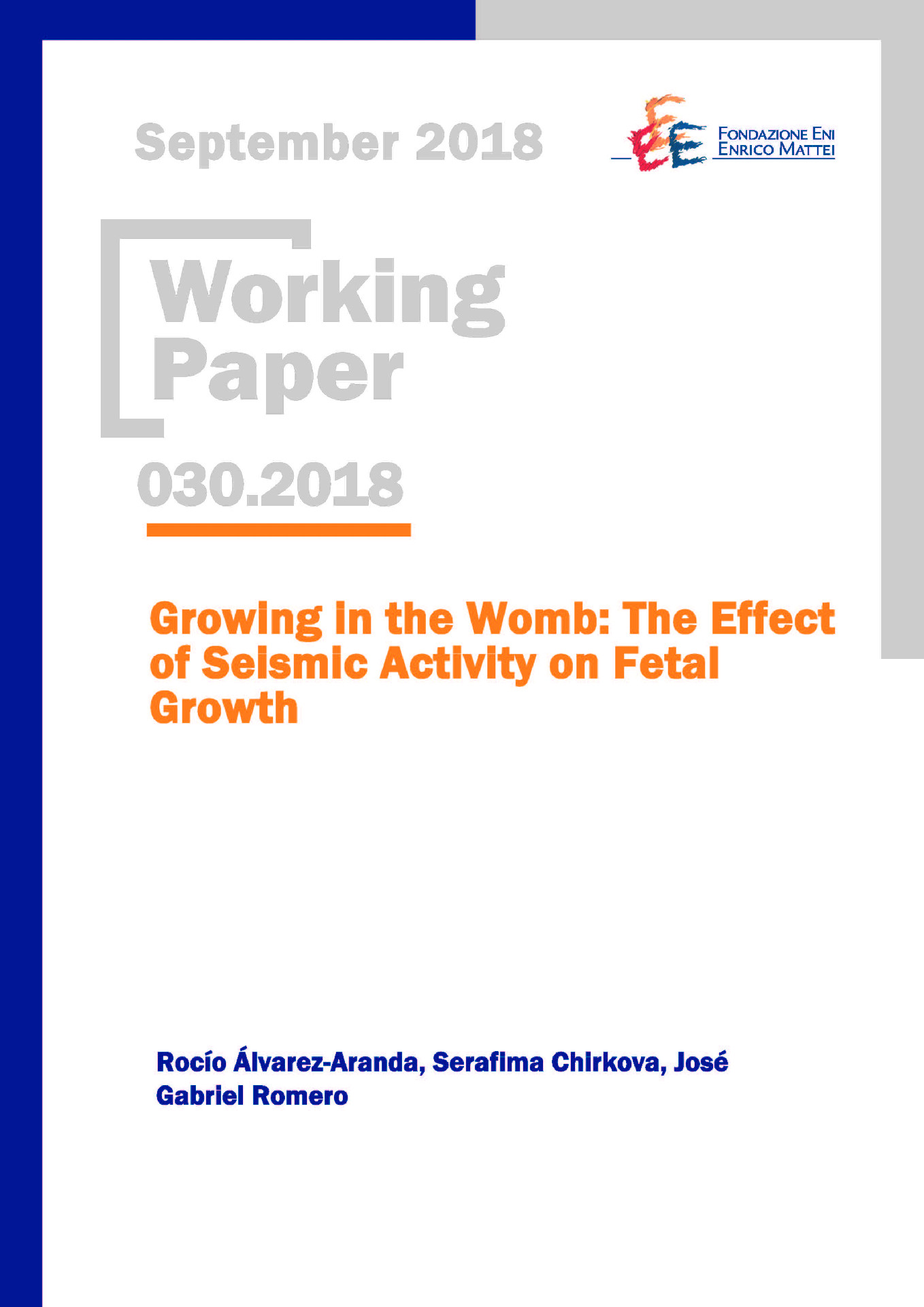Growing in the Womb: The Effect of Seismic Activity on Fetal Growth

21.09.2018
C23, I12, J13
Maternal Stress, Birth Outcomes, Natural Disasters, Mother-Fixed-Effects
Economic Theory and Applications
Matteo Manera
We study how prenatal maternal stress, caused by sustained seismic activity, affects birth outcomes in Chile during the period 2011-2015. A mother-fixed-effect model together with the spatiotemporal variation of earthquakes in Chile allow us to deal with identification issues that have obscured previous estimates. Our findings show that prenatal maternal stress seems to affect fetal growth, because infants born to mothers exposed to earth tremors in early and/or mid gestation are more likely to be large for gestational age. The estimates suggest that relatively poorer Chilean mothers are more vulnerable to earthquakes, because their babies seem to drive the reported impacts on fetal growth. We discuss and provide evidence that suggests a possible mechanism that explains the varying results across socioeconomic status. Mothers with diabetes and/or hypertension are more likely to have large-for-gestational-age babies. Exposure to earth tremors seems to increase the incidence of these afflictions among the affected population, with the observed impact on diabetes being relatively higher among women with lower socio-economic status.
***
Suggested citation: Alvarez-Aranda, R., S. Chirkova, J. G. Romero, (2018), ‘Growing in the Womb: The Effect of Seismic Activity on Fetal Growth’, Nota di Lavoro 30.2018, Milano, Italy: Fondazione Eni Enrico Mattei
